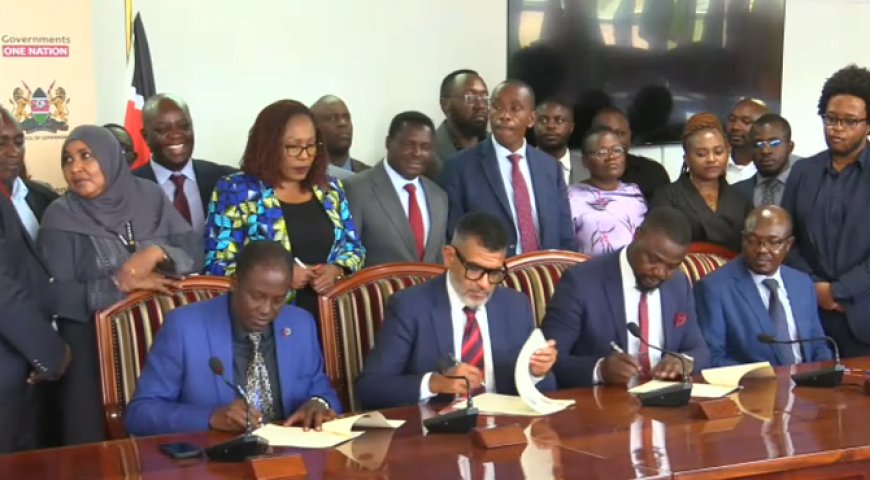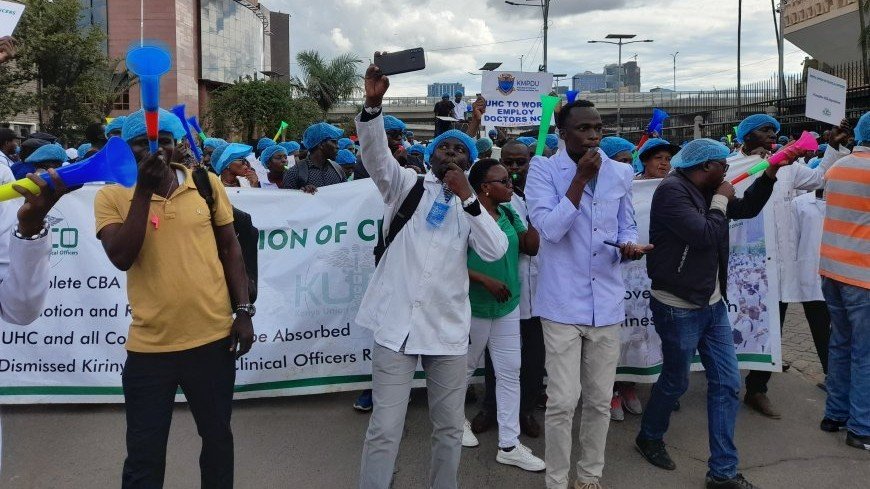Kiambu Doctors Call Off 4-Month Strike
Following the agreement, KMPDU has instructed all striking doctors to resume duty by Monday, October 27, at 8:00 a.m

The Council of Governors (CoG), the Kiambu County Government, and the Kenya Medical Practitioners, Pharmacists and Dentists Union (KMPDU) have reached a mutual agreement that officially brings the doctors’ strike in the county to an end.
After a series of intensive negotiations, the three parties successfully resolved the key issues that had triggered the industrial action that lasted 150 days, paving the way for the full resumption of healthcare services across all public hospitals in Kiambu.
The deal marks a breakthrough in restoring normal operations within the county’s health sector, which had been paralyzed for days as medical professionals protested over unmet grievances related to delayed promotions, salary delays, doctors’ transfers, statutory deductions, and medical insurance.
Following the agreement, KMPDU has instructed all striking doctors to resume duty by Monday, October 27, at 8:00 a.m., signaling the official end of the standoff.

KMPDU Secretary General Dr. Davji Atellah (middle) shaking hands with Kiambu Governor Kimani Wamatangi (right) on October 24, 2025. /X
Speaking to the media, KMPDU Secretary General Dr. Davji Atellah announced that the union had reached a return-to-work agreement with the Kiambu County Government, effectively resolving the contentious issues that had pushed doctors in the county to strike.
Dr. Atellah explained that the county administration had given firm commitments to address long-standing grievances, including delays in salary payments, stalled promotions, irregular transfers, unpaid statutory deductions, and gaps in medical insurance coverage. These, he said, were among the key concerns that had frustrated healthcare workers and prompted the industrial action.
The strike had been triggered by what KMPDU described as the county government’s persistent failure to act on these issues, which led to escalating tensions and a public exchange of blame between the two sides.
The prolonged industrial action, which lasted for several months, severely disrupted healthcare delivery in Kiambu. Public hospitals were left crippled, forcing patients to turn to expensive private facilities in search of treatment.
Matters worsened when reports emerged that at least 136 infants had died in various public hospitals across the county during the strike period — a tragedy that sparked national outrage and renewed scrutiny of Kiambu’s ability to effectively manage its healthcare system.







